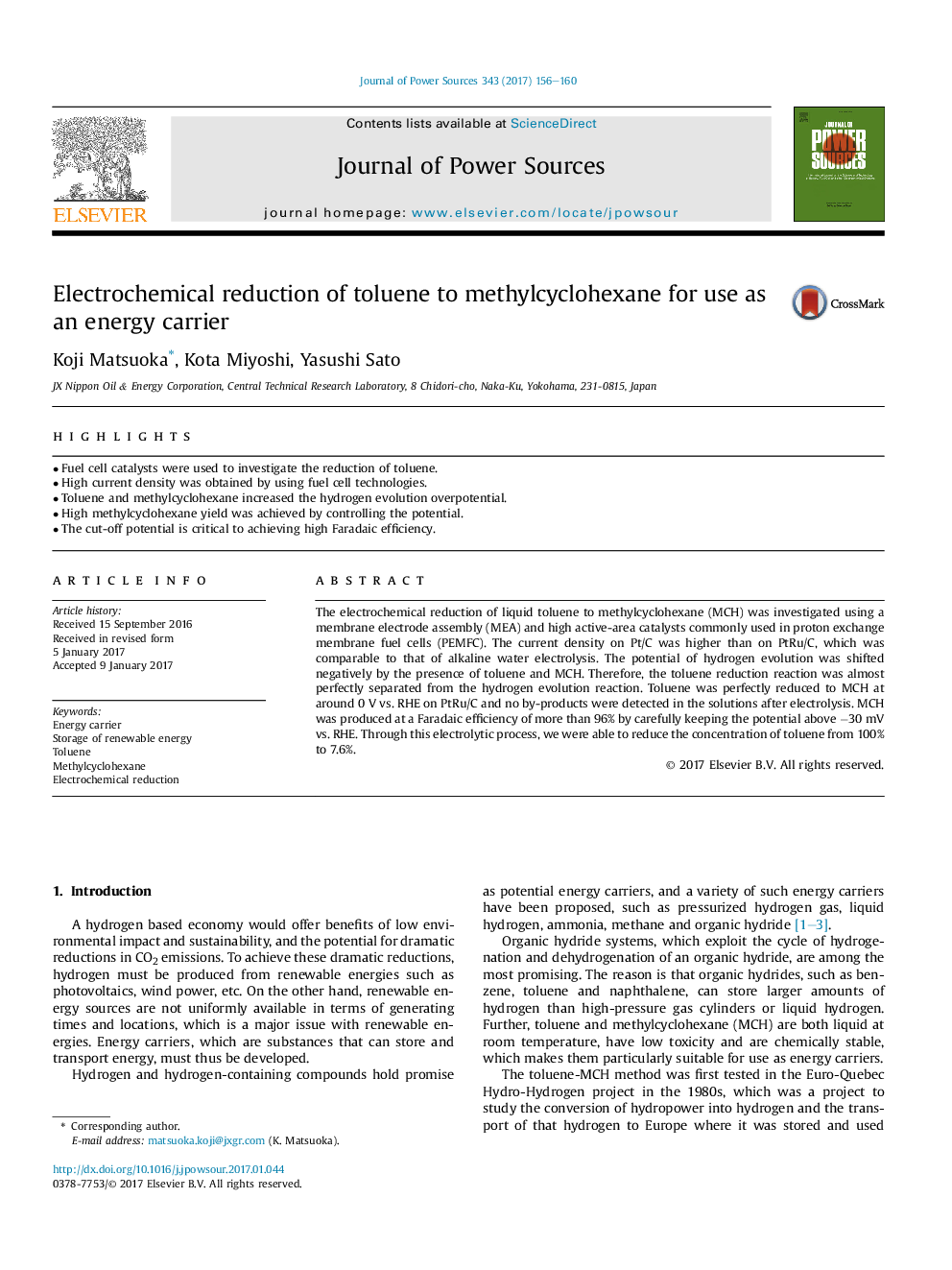| Article ID | Journal | Published Year | Pages | File Type |
|---|---|---|---|---|
| 5149476 | Journal of Power Sources | 2017 | 5 Pages |
Abstract
The electrochemical reduction of liquid toluene to methylcyclohexane (MCH) was investigated using a membrane electrode assembly (MEA) and high active-area catalysts commonly used in proton exchange membrane fuel cells (PEMFC). The current density on Pt/C was higher than on PtRu/C, which was comparable to that of alkaline water electrolysis. The potential of hydrogen evolution was shifted negatively by the presence of toluene and MCH. Therefore, the toluene reduction reaction was almost perfectly separated from the hydrogen evolution reaction. Toluene was perfectly reduced to MCH at around 0 V vs. RHE on PtRu/C and no by-products were detected in the solutions after electrolysis. MCH was produced at a Faradaic efficiency of more than 96% by carefully keeping the potential above â30 mV vs. RHE. Through this electrolytic process, we were able to reduce the concentration of toluene from 100% to 7.6%.
Related Topics
Physical Sciences and Engineering
Chemistry
Electrochemistry
Authors
Koji Matsuoka, Kota Miyoshi, Yasushi Sato,
